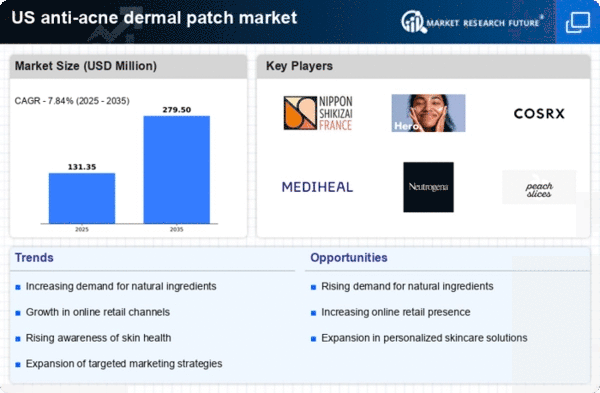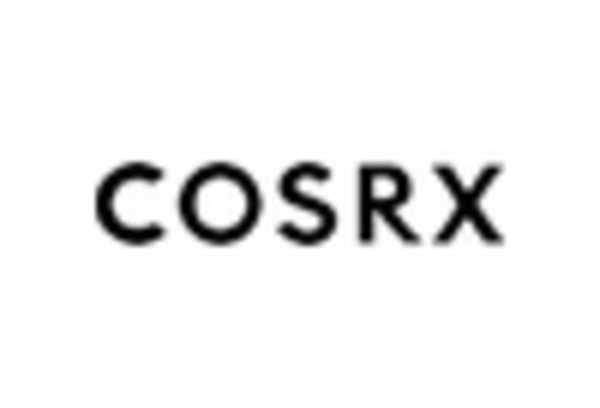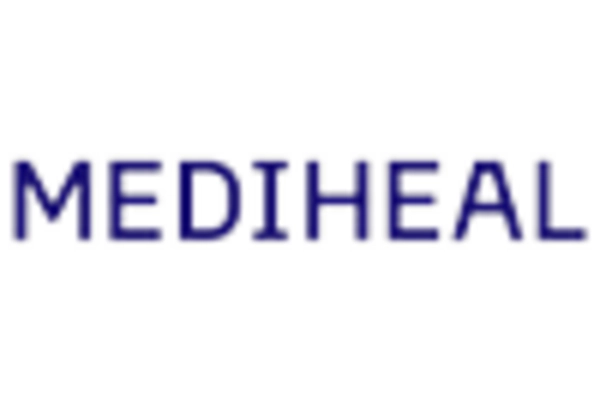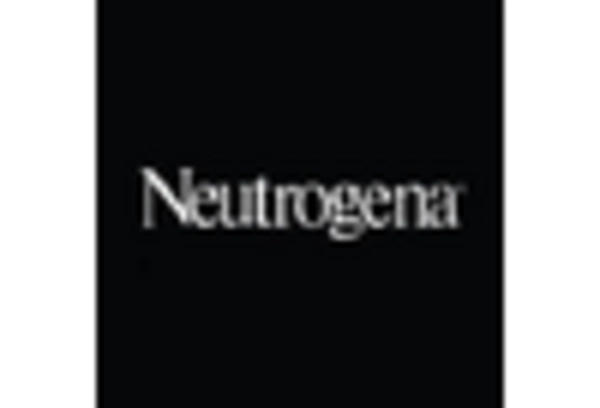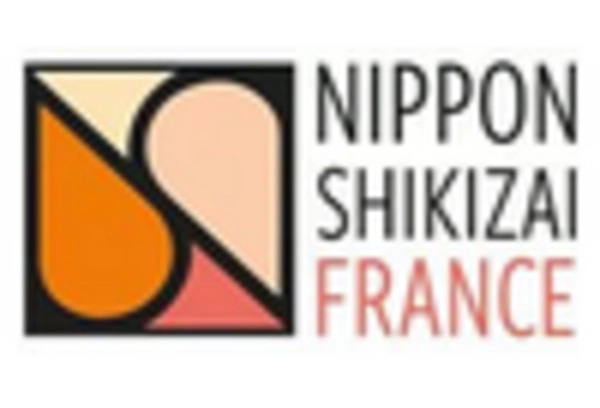Growing Awareness of Skin Health
The increasing awareness of skin health among consumers is a pivotal driver for the anti acne-dermal-patch market. As individuals become more informed about skincare, they are actively seeking effective solutions for acne management. This trend is particularly pronounced among younger demographics, who are more likely to invest in products that promise clear skin. According to recent surveys, approximately 70% of teenagers and young adults express concern about acne, leading to a surge in demand for targeted treatments. The anti acne-dermal-patch market benefits from this heightened awareness, as these patches offer a convenient and discreet method for treating blemishes. Furthermore, the emphasis on skin health aligns with broader wellness trends, encouraging consumers to prioritize products that enhance their overall appearance and confidence.
Shift Towards Convenience in Skincare
The shift towards convenience in skincare routines is a notable driver for the anti acne-dermal-patch market. Modern consumers are increasingly seeking products that fit seamlessly into their busy lifestyles. Anti acne-dermal patches offer a practical solution, allowing users to treat blemishes discreetly while going about their daily activities. This convenience factor is particularly appealing to younger consumers, who often prioritize efficiency in their skincare regimens. Market Research Future suggests that products designed for on-the-go use are experiencing a surge in popularity, with sales in this category growing by approximately 30% over the past year. As the demand for convenient skincare solutions continues to rise, the anti acne-dermal-patch market is likely to benefit from this trend, attracting consumers looking for effective yet easy-to-use products.
Rising Incidence of Acne Among Adolescents
The rising incidence of acne among adolescents serves as a crucial driver for the anti acne-dermal-patch market. Studies indicate that approximately 85% of individuals aged 12 to 24 experience some form of acne, highlighting a persistent need for effective treatment options. This demographic is particularly receptive to innovative products that offer quick and visible results. The anti acne-dermal-patch market is well-positioned to cater to this need, as these patches provide localized treatment that can be easily integrated into daily routines. Additionally, the growing prevalence of acne is prompting healthcare professionals to recommend targeted therapies, further boosting the market. As awareness of the psychological impact of acne increases, the demand for effective solutions is expected to rise, driving growth in the anti acne-dermal-patch market.
Influence of Social Media and Beauty Trends
The influence of social media and beauty trends significantly impacts the anti acne-dermal-patch market. Platforms like Instagram and TikTok have become vital channels for beauty influencers to showcase skincare routines and product recommendations. This exposure drives consumer interest in innovative solutions, such as dermal patches, which are often highlighted for their effectiveness and ease of use. Recent data indicates that nearly 60% of consumers discover new skincare products through social media, underscoring its role in shaping purchasing decisions. As beauty trends evolve, the anti acne-dermal-patch market is likely to see increased sales driven by viral product endorsements and user-generated content. This dynamic environment encourages brands to engage with consumers through targeted marketing strategies, further propelling market growth.
Increased Investment in Research and Development
Increased investment in research and development (R&D) within the skincare industry is a significant driver for the anti acne-dermal-patch market. Companies are focusing on developing advanced formulations and technologies that enhance the efficacy of dermal patches. This commitment to innovation is evident in the introduction of patches infused with active ingredients that target acne at various stages of development. Recent reports indicate that R&D spending in the skincare sector has risen by over 25% in the last few years, reflecting a strong commitment to improving product performance. As brands strive to differentiate themselves in a competitive market, the anti acne-dermal-patch market stands to gain from these advancements, offering consumers more effective and appealing treatment options.


